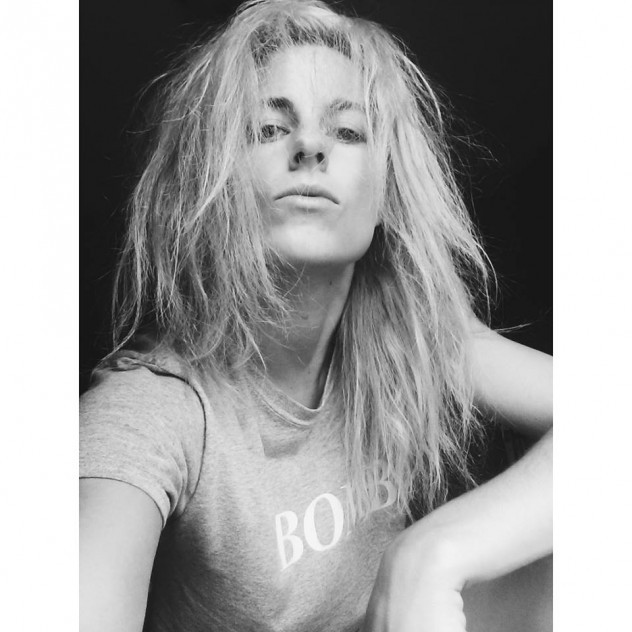Political Poetry
Breaking Down the Notion of the Blank Canvas
July 2015
~
“Writing as writing. Writing as rioting. Writing as righting.
On the best days, all three.” – Teju Cole
The very act of writing is political. Writers work with language on such a fundamental level, and with the avenues of publishing, visibility, and capital, this translates to power, or, when this writing is kept from visibility, powerlessness.
The written form can lead to our greatest expression, where meaning is formed and reformed, and where observation and rendering of that observation is inherently coded in our experiences, our biases, and our concerns. It is though the connections we make with language, to each other and to what has come before, references and allusions, allegories and metaphors, in which we key into a larger story, our own and that of others.
So where, then, does the idea come, that Art with a capital A exists in a vacuum? The idea that art is apolitical is political. If we don’t hold ourselves accountable for our art then all of our poetic lamenting about the death of humanity falls flat, our metaphors about our individual and collective existential crises become perverted jokes, and our connections are severed or empty.
In this generative workshop we will aim to challenge the idea of Art as an unpolitical act, we will discuss which techniques and considerations can lead to meaningful connection with the reader and with a more complete audience, and how we hold ourselves accountable to our work. We will discover how to work both on personal and collective levels to dismantle oppressive beliefs through our own words and actions, even approach how one might affect change through this work. How can poetry address despair, or privilege? How can art begin to build new communities, and how can we hold ourselves accountable to a fuller observation of the world around us?
About the Artist
 Sarah Xerta is the author of Nothing To Do With Me (University of Hell Press, 2015), as well as the chapbooks Red Paper Heart (Zoo Cake Press, 2013), JULIET (I) (H_NGM_N, 2014) and JULIET (II), which is one of the recent winners of the Nostrovia! Chapbook NYC Poetry Contest. She has taught at the Loft Literary Center in Minneapolis but prefers her new volunteer position working as an art mentor with youth who have experienced trauma. She holds an MFA from one of the top low-residency programs in the country and would burn it if the act of burning it wasn’t itself a nasty privilege.
Sarah Xerta is the author of Nothing To Do With Me (University of Hell Press, 2015), as well as the chapbooks Red Paper Heart (Zoo Cake Press, 2013), JULIET (I) (H_NGM_N, 2014) and JULIET (II), which is one of the recent winners of the Nostrovia! Chapbook NYC Poetry Contest. She has taught at the Loft Literary Center in Minneapolis but prefers her new volunteer position working as an art mentor with youth who have experienced trauma. She holds an MFA from one of the top low-residency programs in the country and would burn it if the act of burning it wasn’t itself a nasty privilege.
This course will “meet” throughout the month of July. You will have continuous access to a shared, secure course space throughout the span of the workshop, and will receive a set of exercises, examples, and prompts at the start of each week.
At the end of each week you’ll have the opportunity to turn in a section of work for formal feedback from your workshop leader, who will give you editorial comments as well as suggestions for expansion in your reading and craft. You’ll also be able to ask questions in the course space, including in an “office hours” forum.
Go at your own pace, but generate as much as you can, and you are encouraged to post your results, marathon-style, to the class space (and give feedback if you’ve got time!). There will also be a forum available on the course page where you and the rest of the workshop group can communicate with one another about ideas, questions, and your favorite sources for inspiration, ideas, and motivation.
Apiary’s workshops are designed to provide both one-on-one instructor feedback and guidance, and a learning environment and supportive community to share in with your peers.
What you can expect
- a password-protected space in which to share work with your workshop leader and peers
- 4 rounds of feedback and instructive support with your workshop leader (up to 2-3 poems each week, suggested readings); and encouragement of peer feedback
- “office hours” in the form of private messaging and forum responses
- focused attention to the development and exploration of your own craft and language. This is about your work, and where you want to go.
- a supportive environment for your writing, always.
*UPDATE: SPECIAL OFFER, discount on Developmental Manuscript Critique!
We’ve converted this workshop into an introductory offer for the Developmental Manuscript Critiques through our editorial services! Sign up today and received a Developmental Manuscript Critique on the material of your choice with Sarah Xerta, welcoming discussions of poetry, politics, and trauma.
Upon sign-up you will receive a Developmental Manuscript Critique (details here), as well as access to our prompts database and extended Apiary Lit workshops community. It’s the best of our workshops and editorial services in one!
Political Poetry
*Open til July 15 (midnight PST)!
Image credit: Kenzie Allen
**